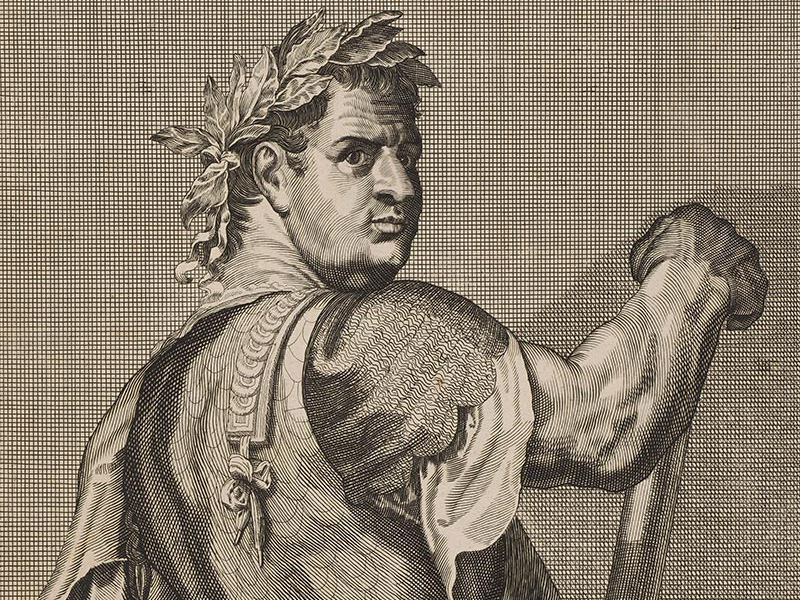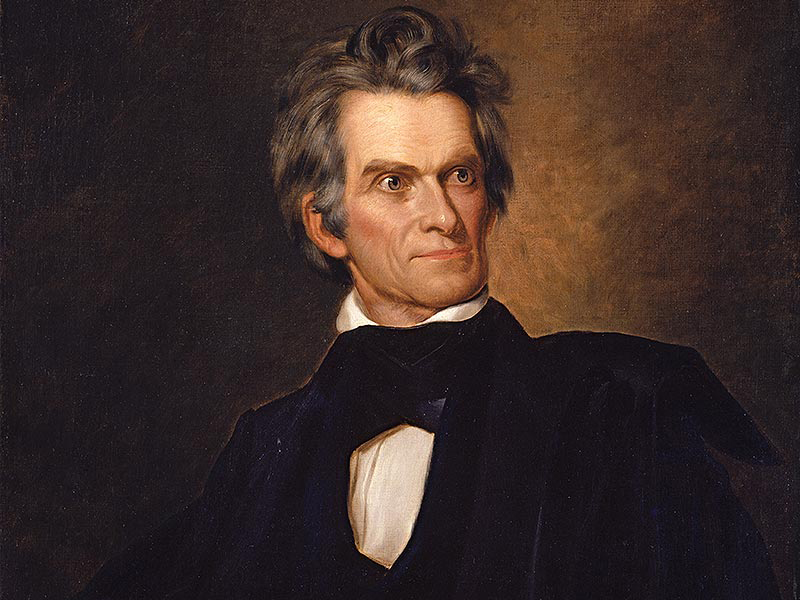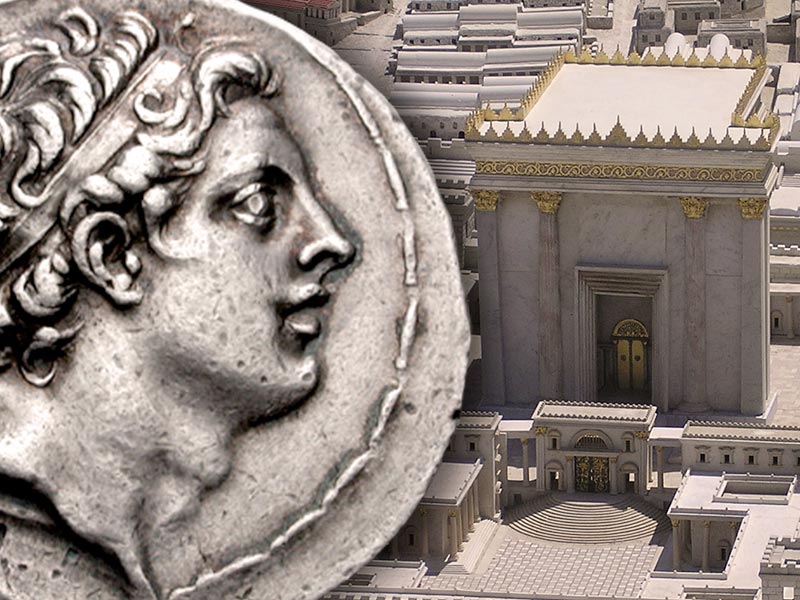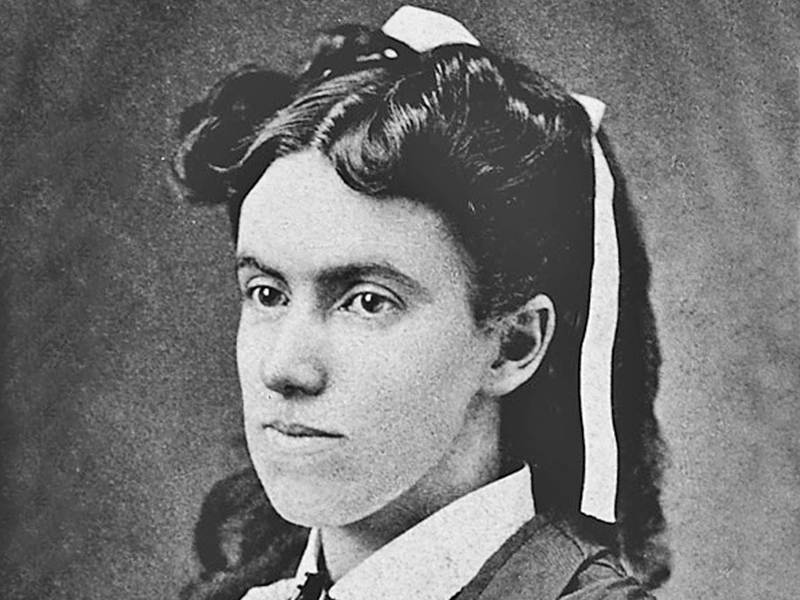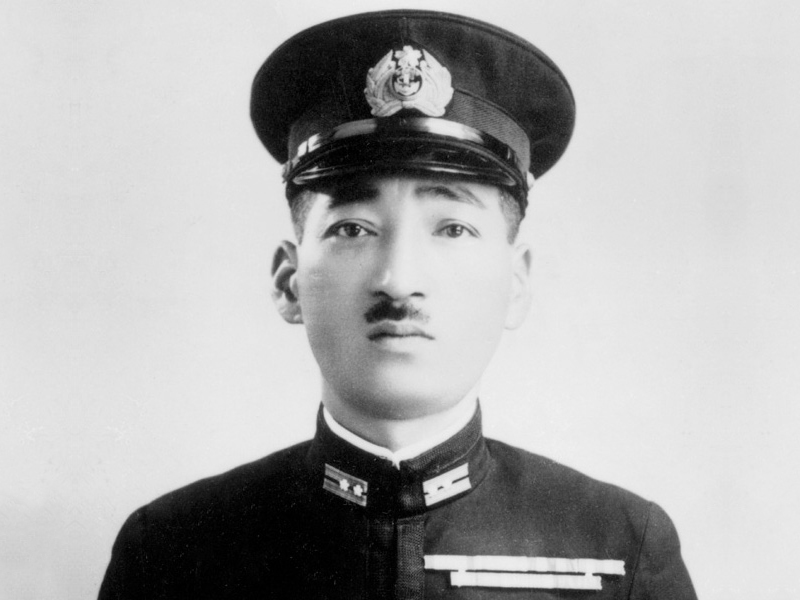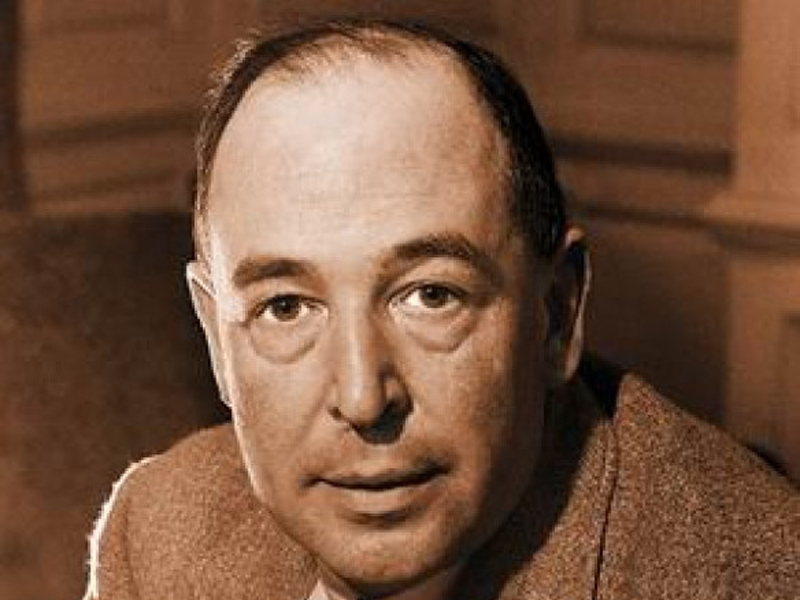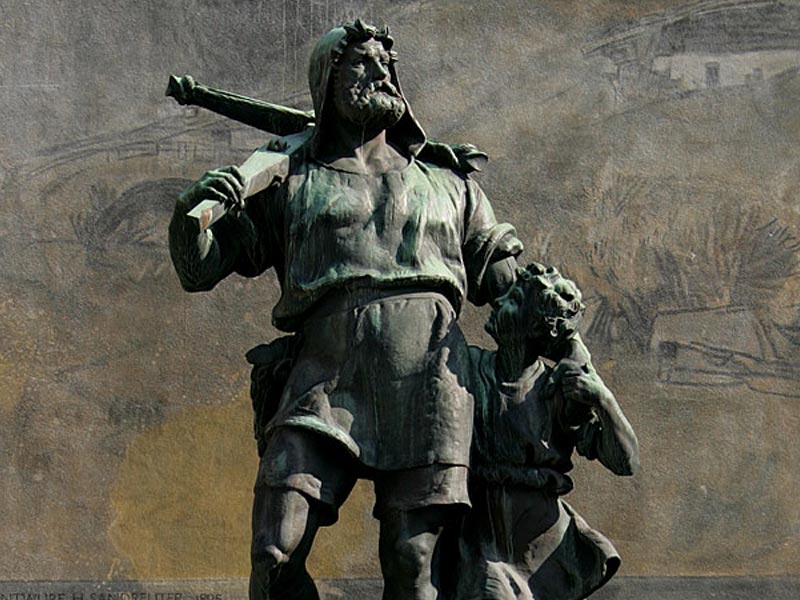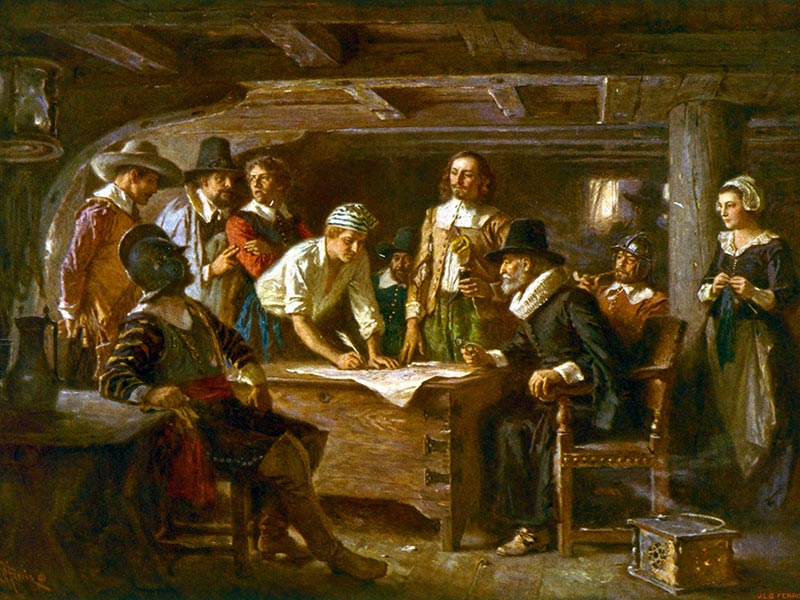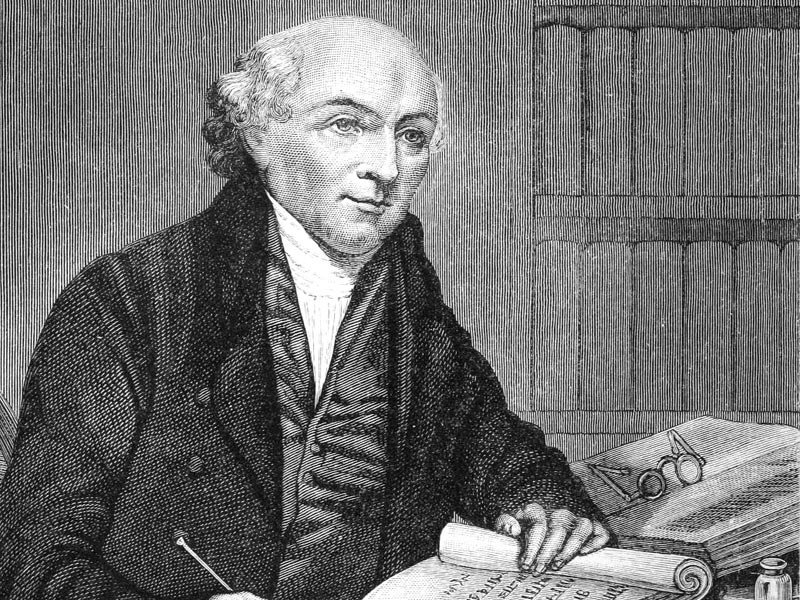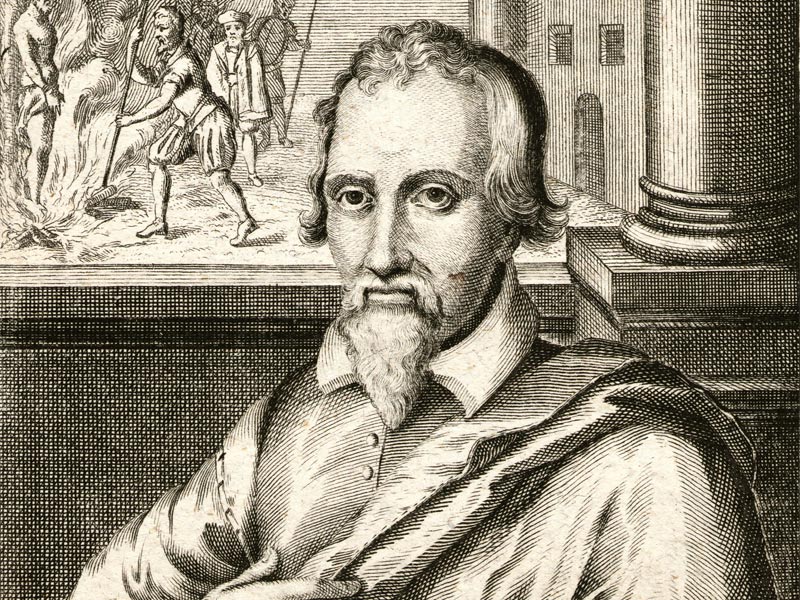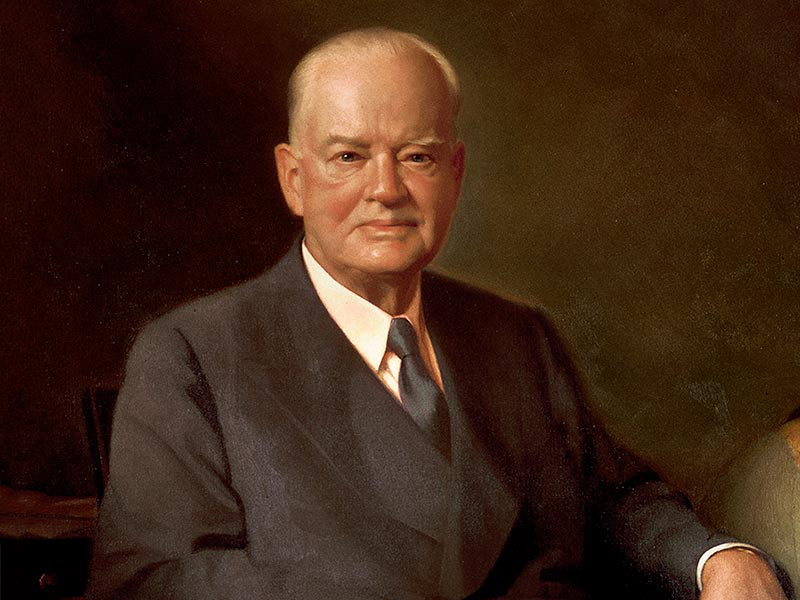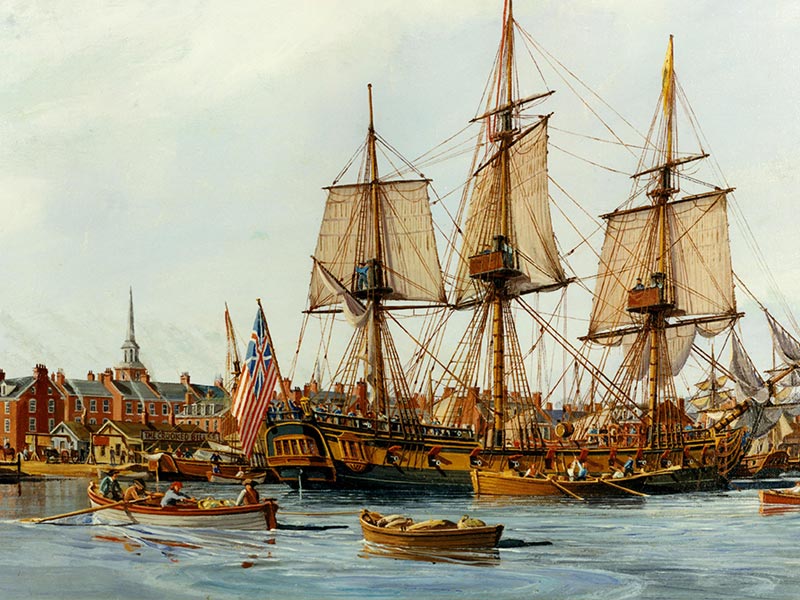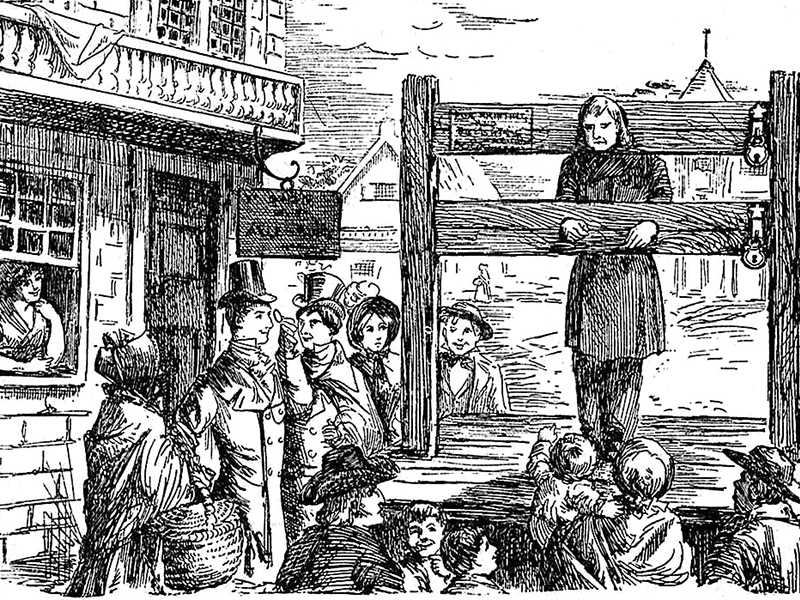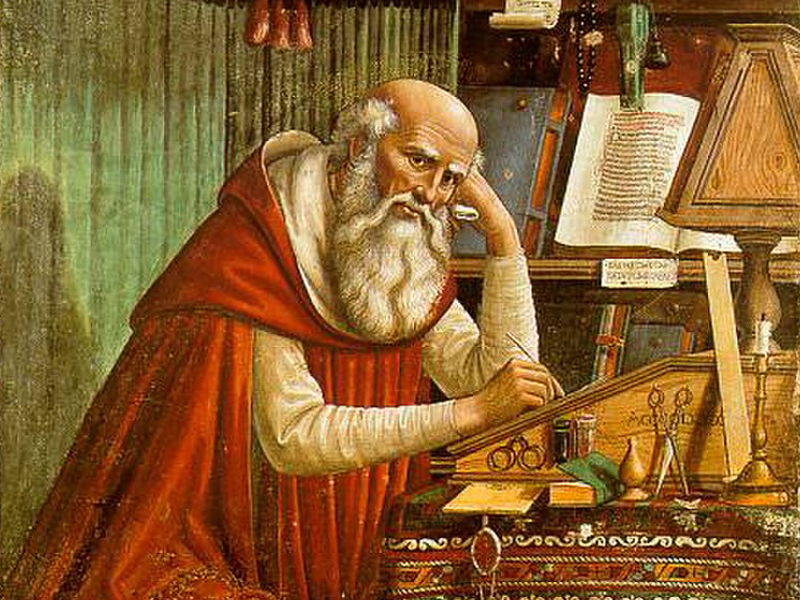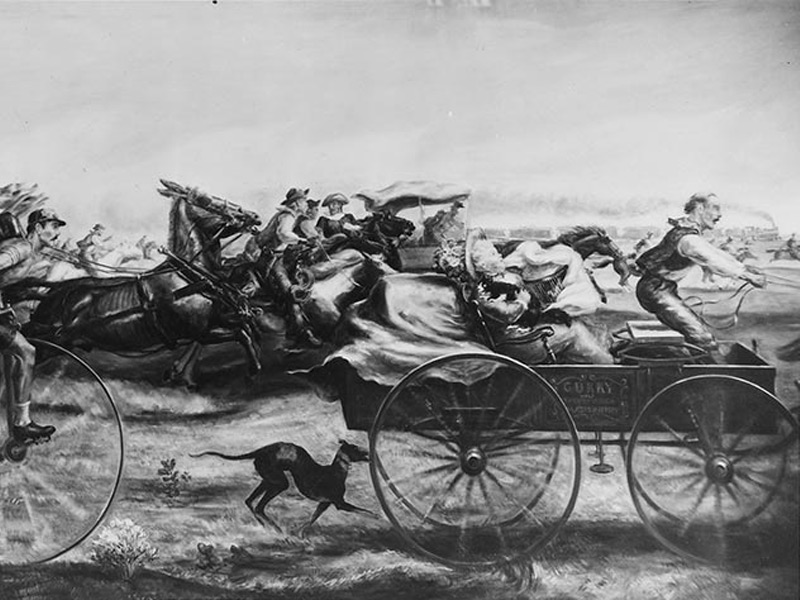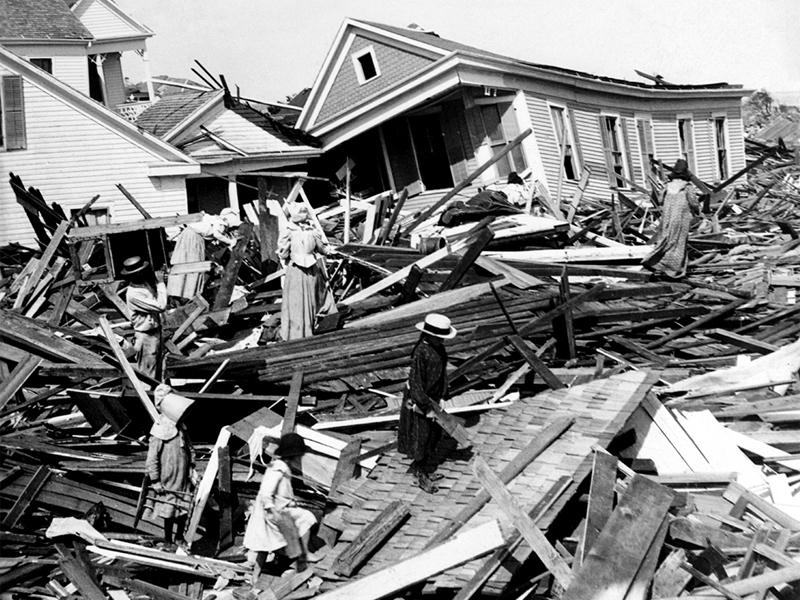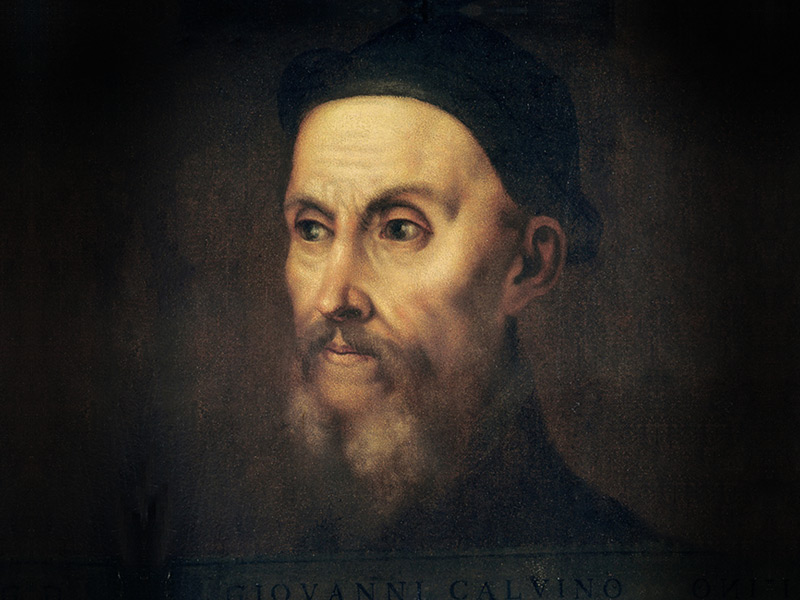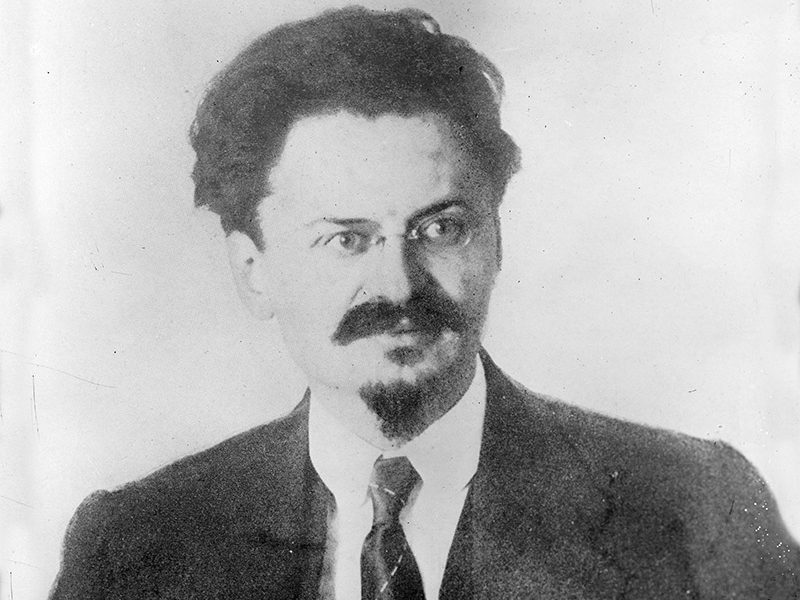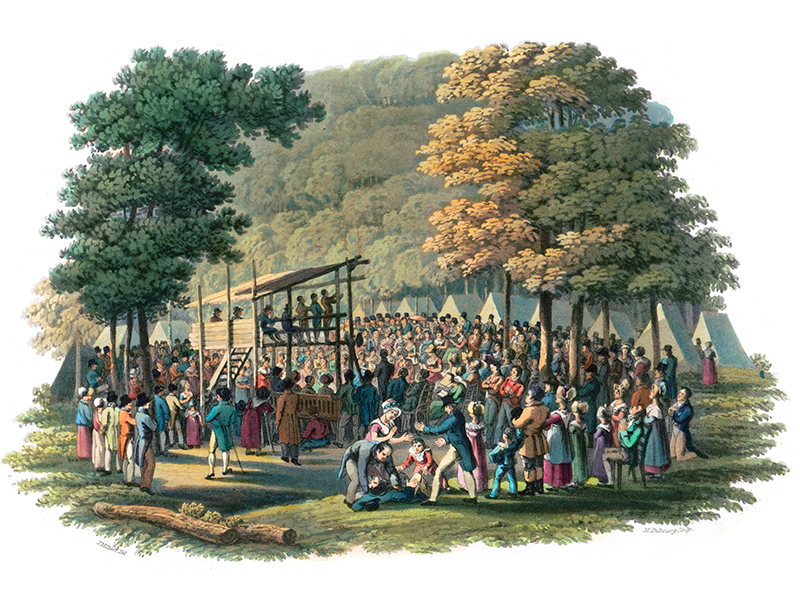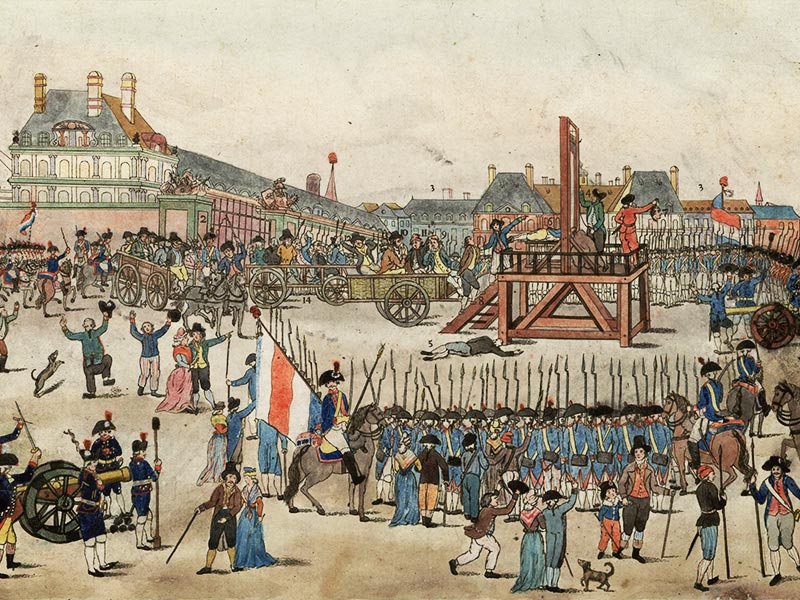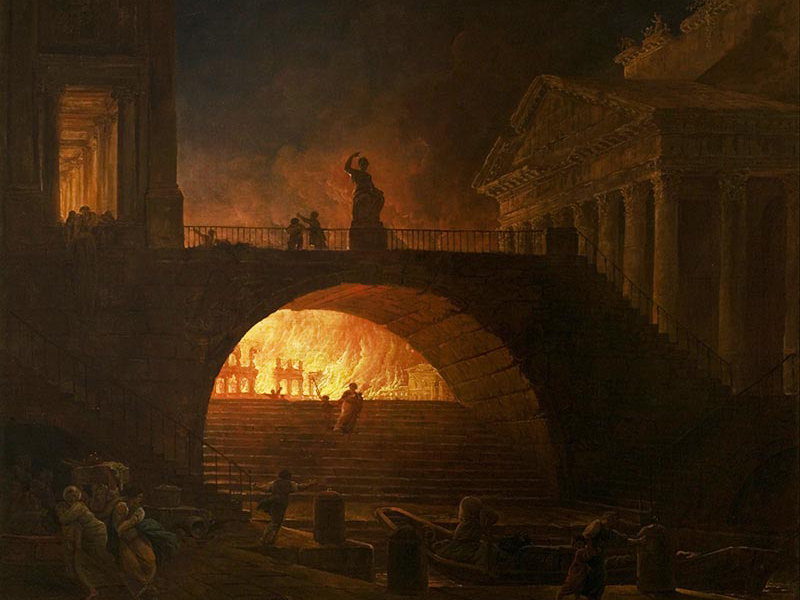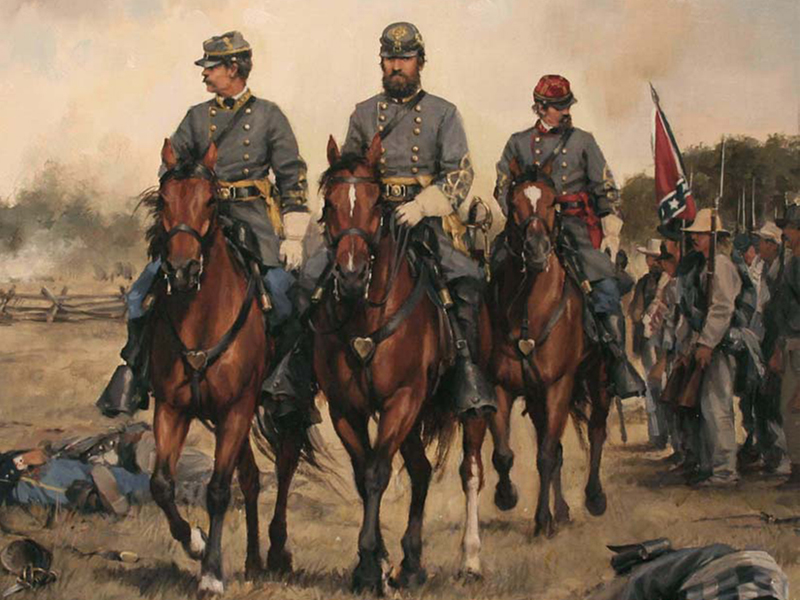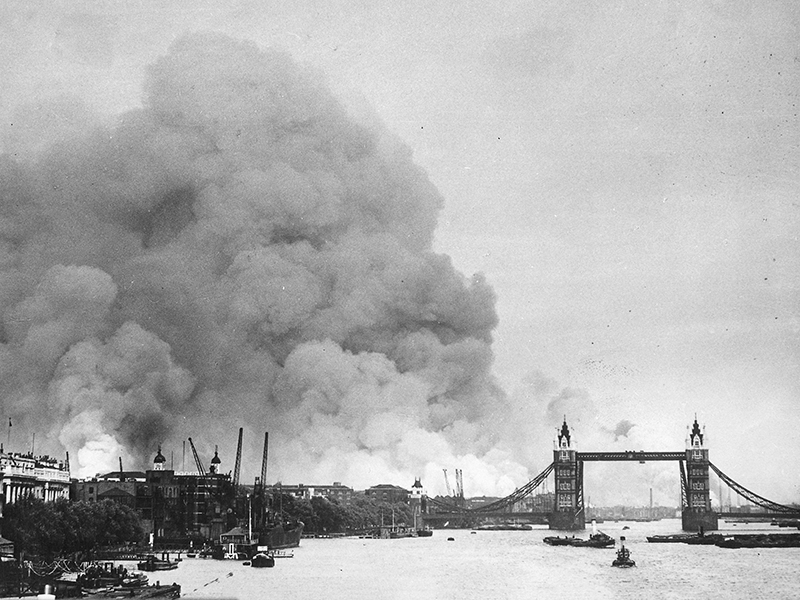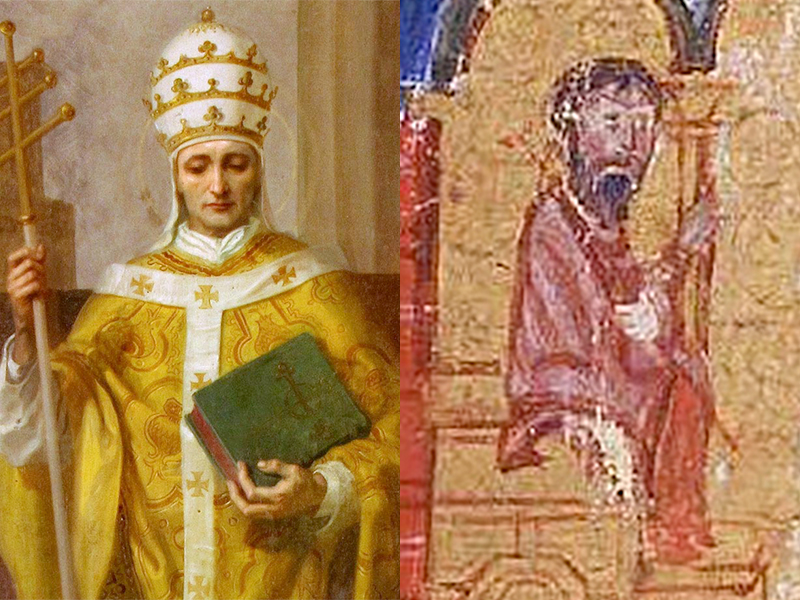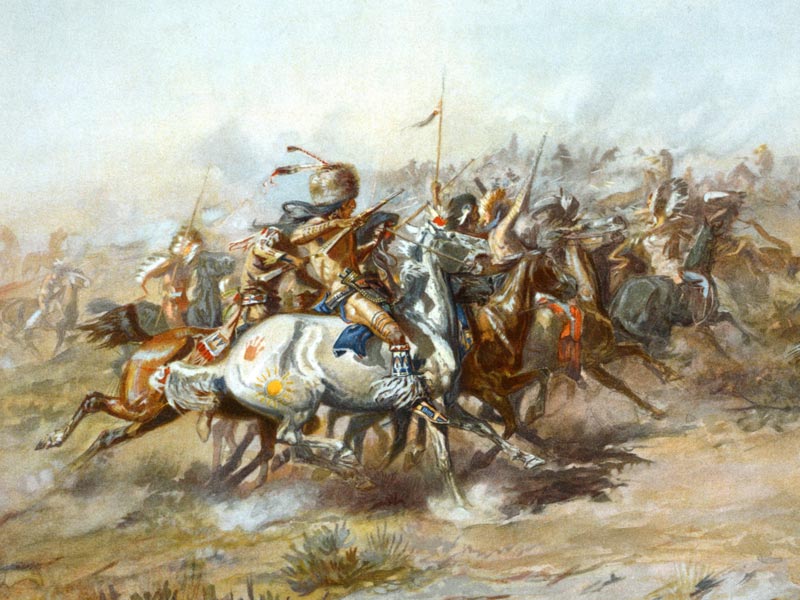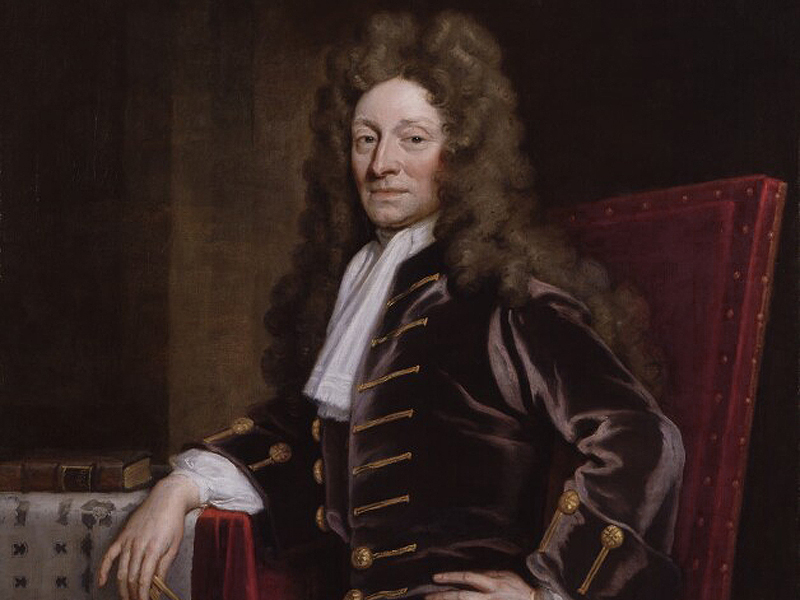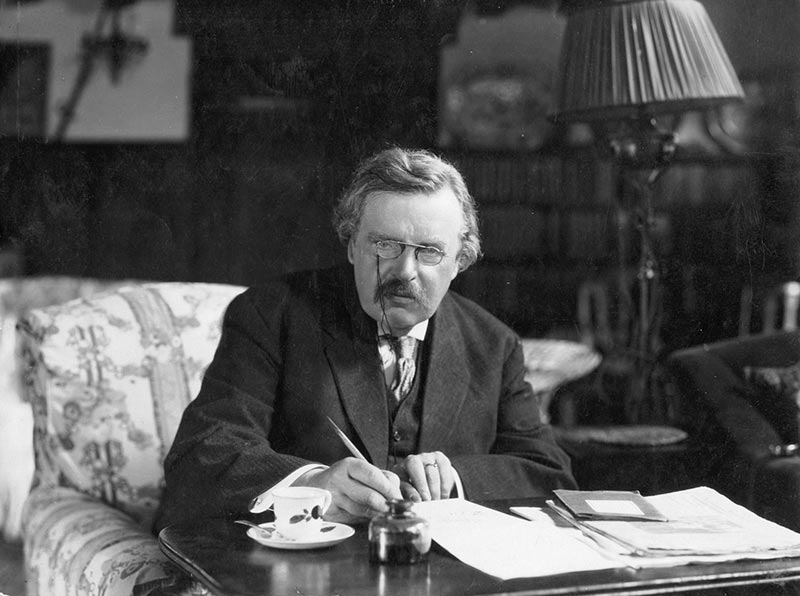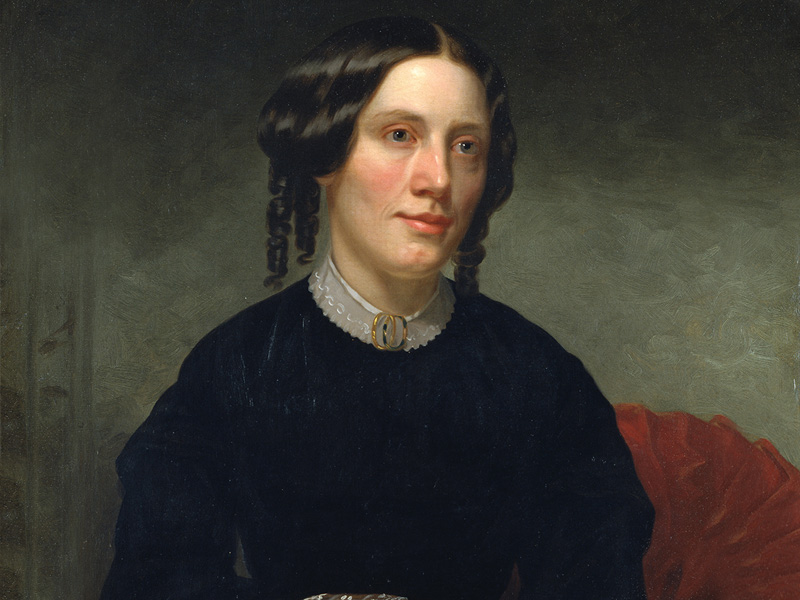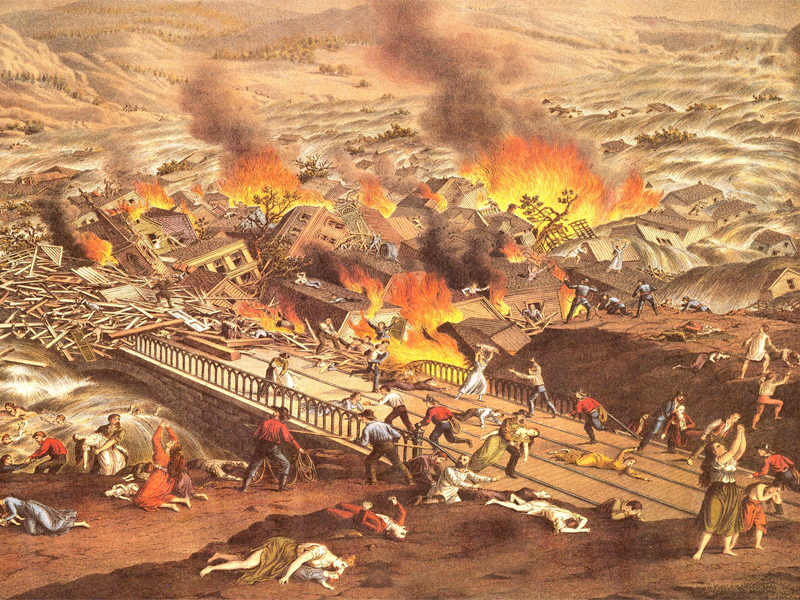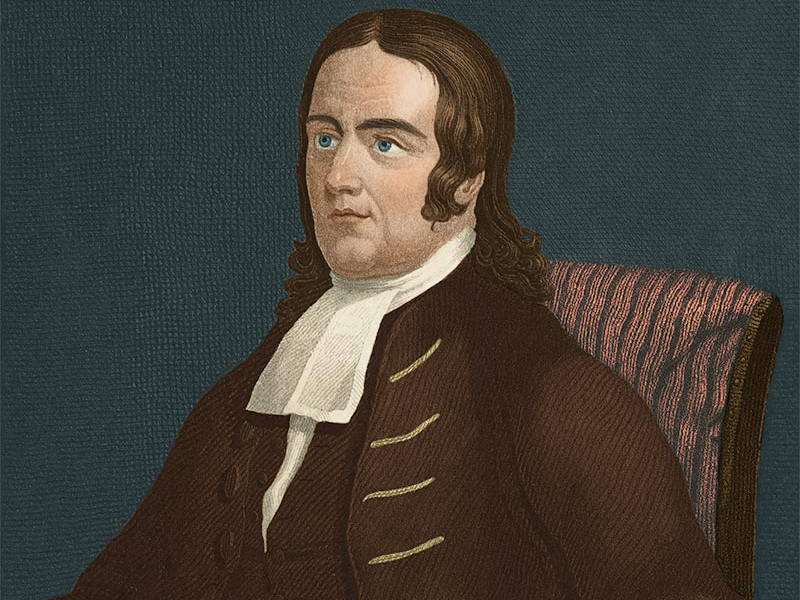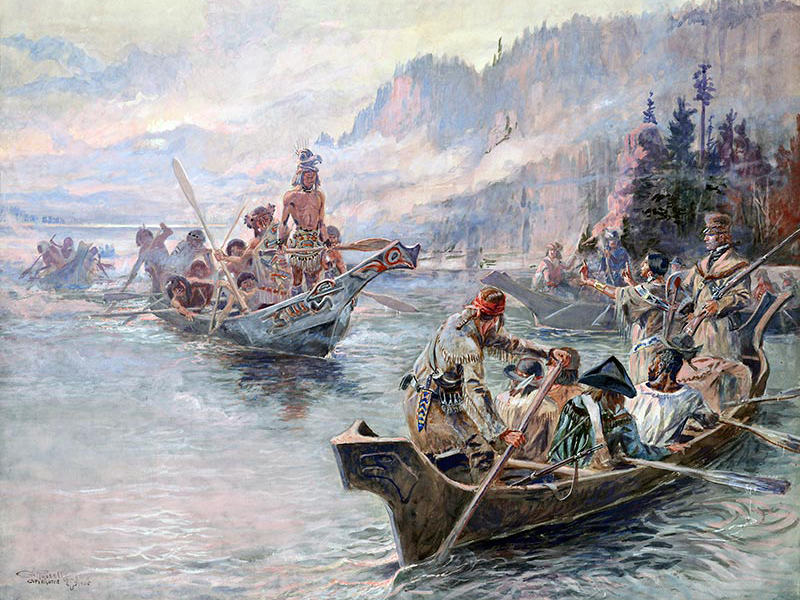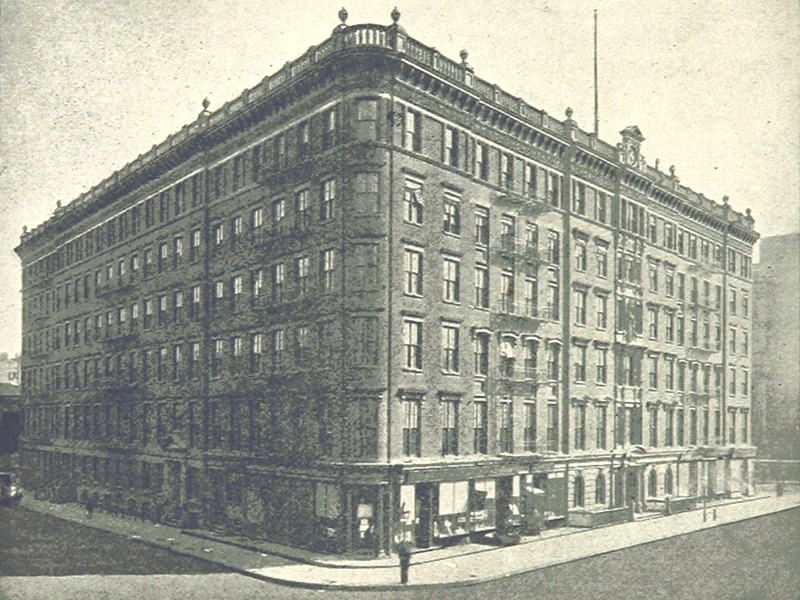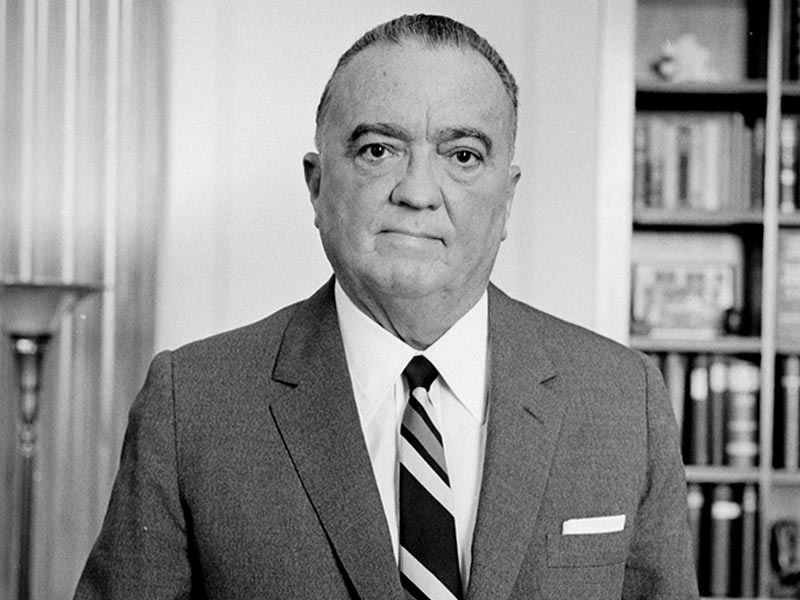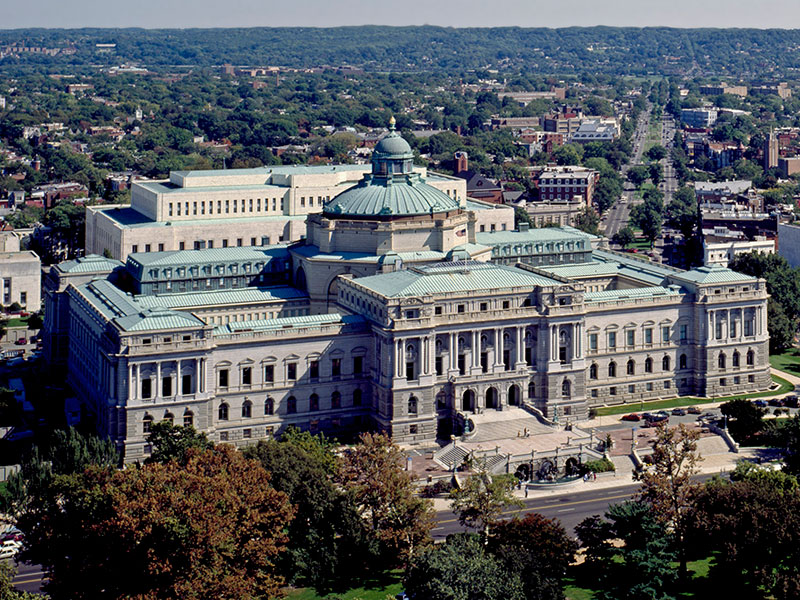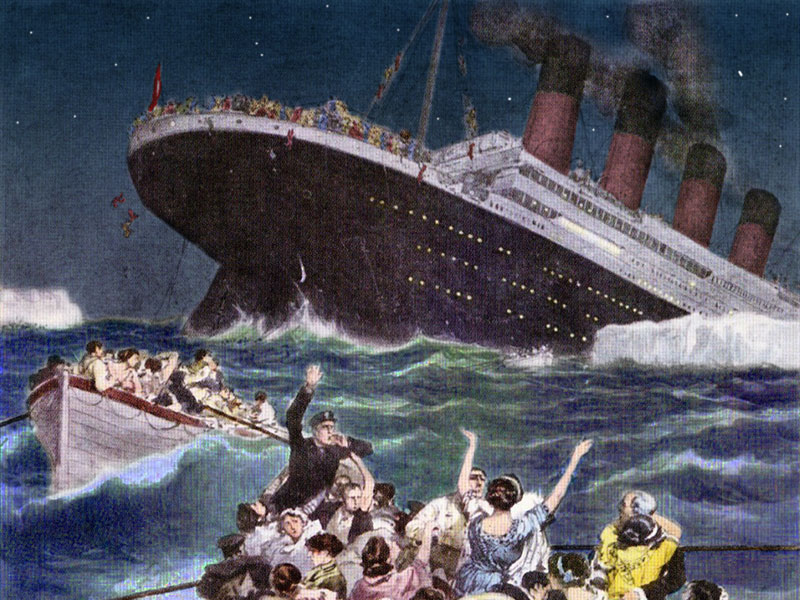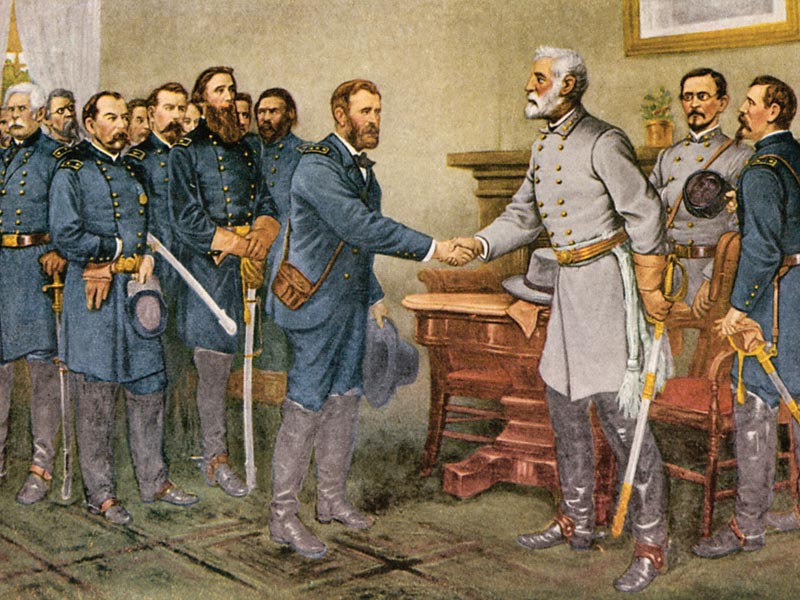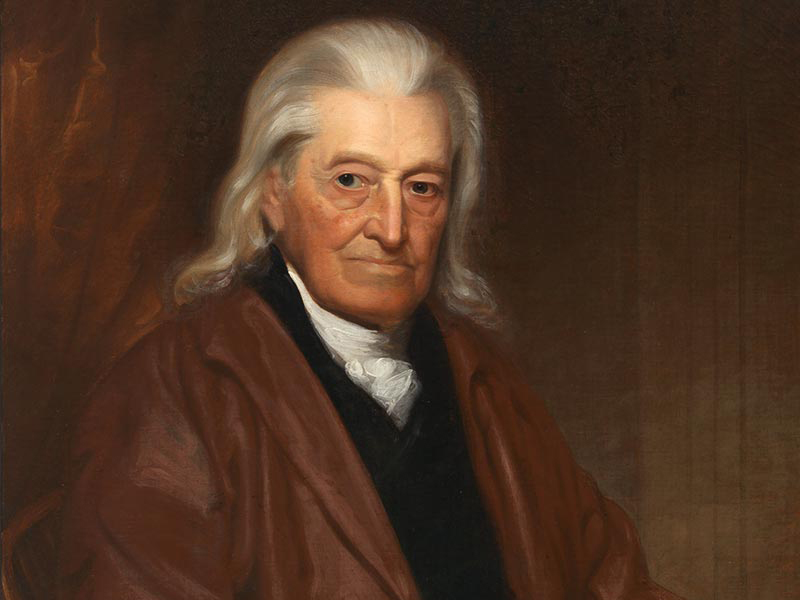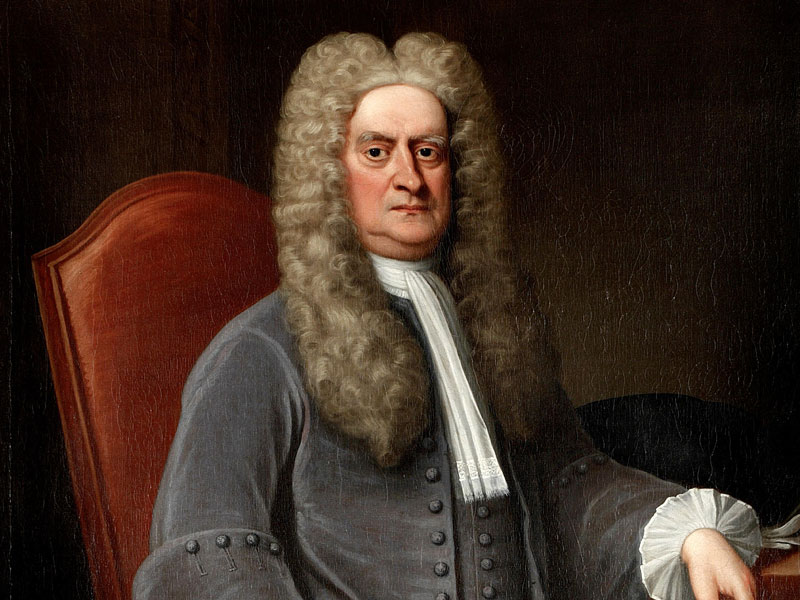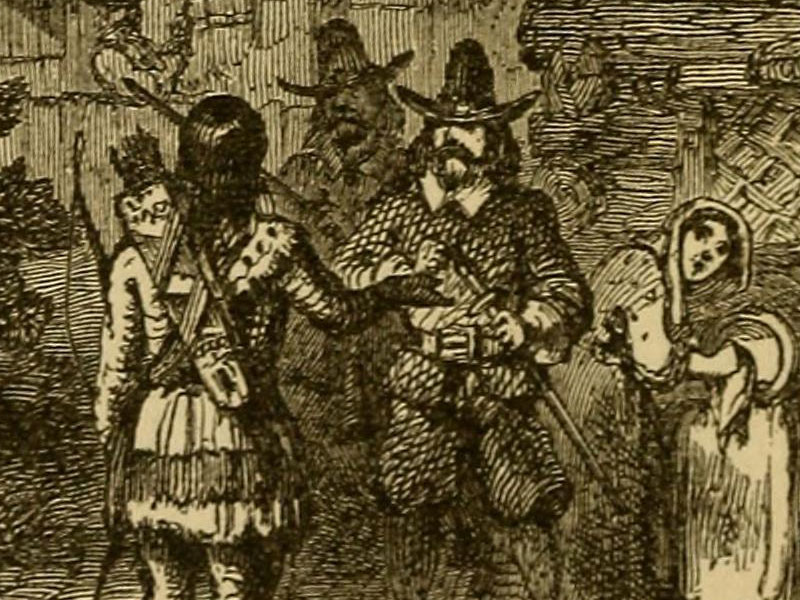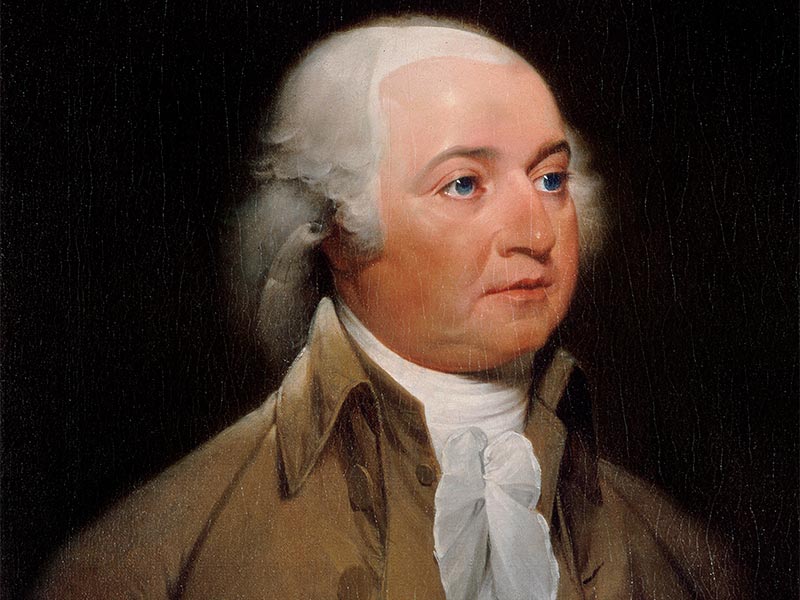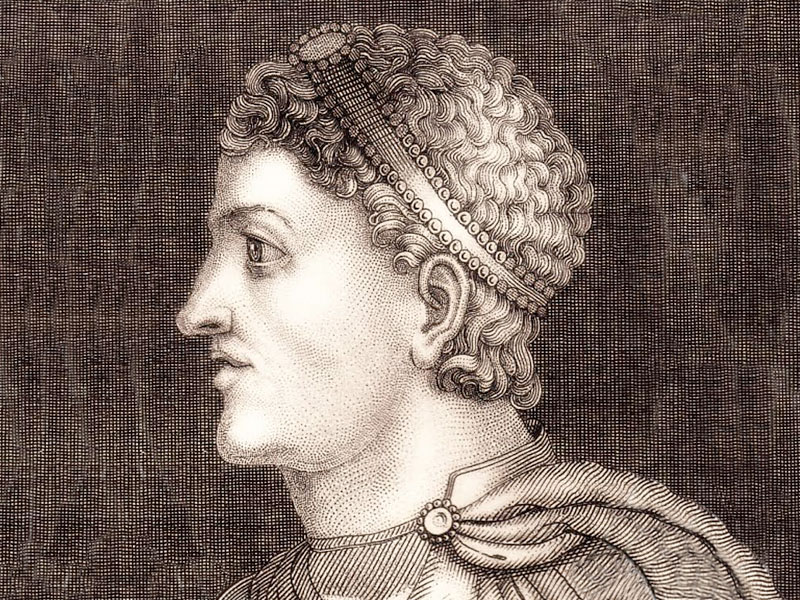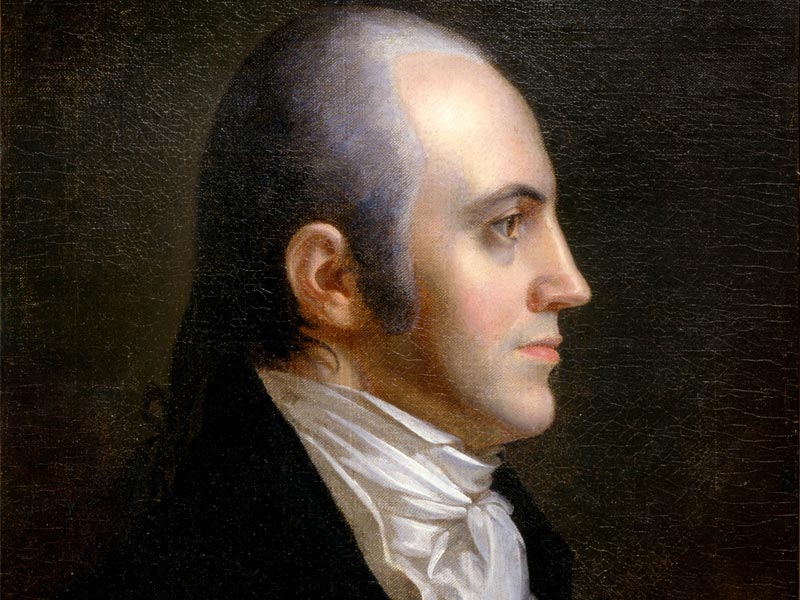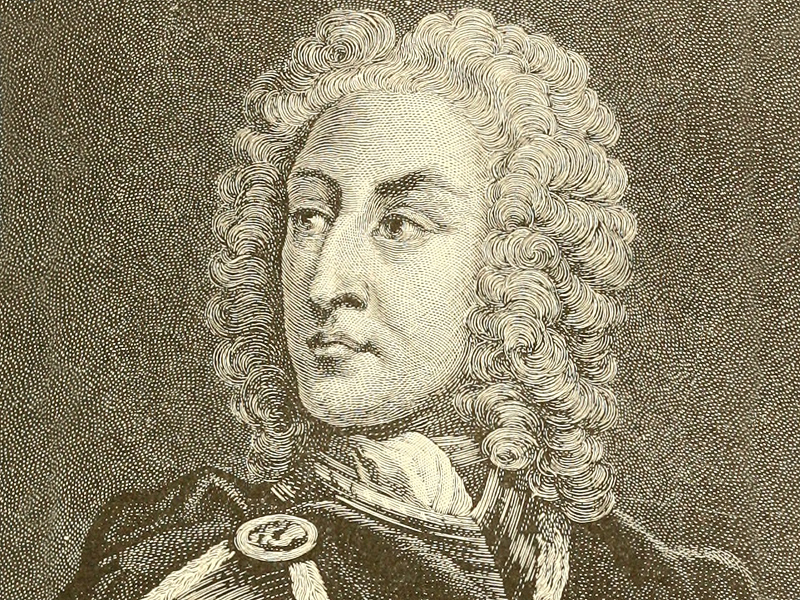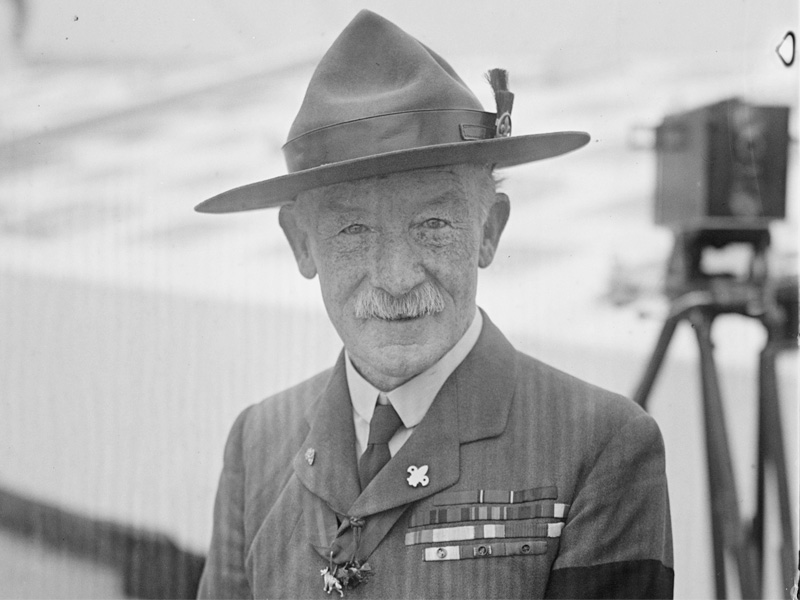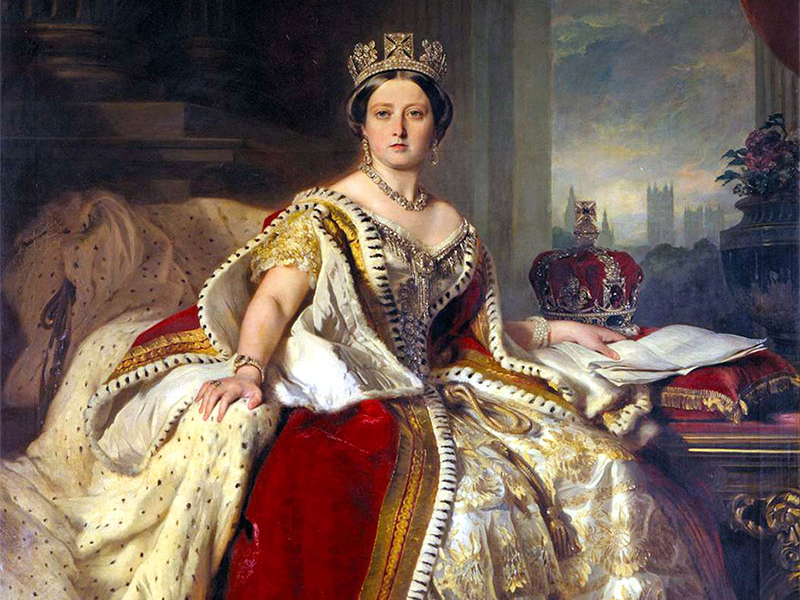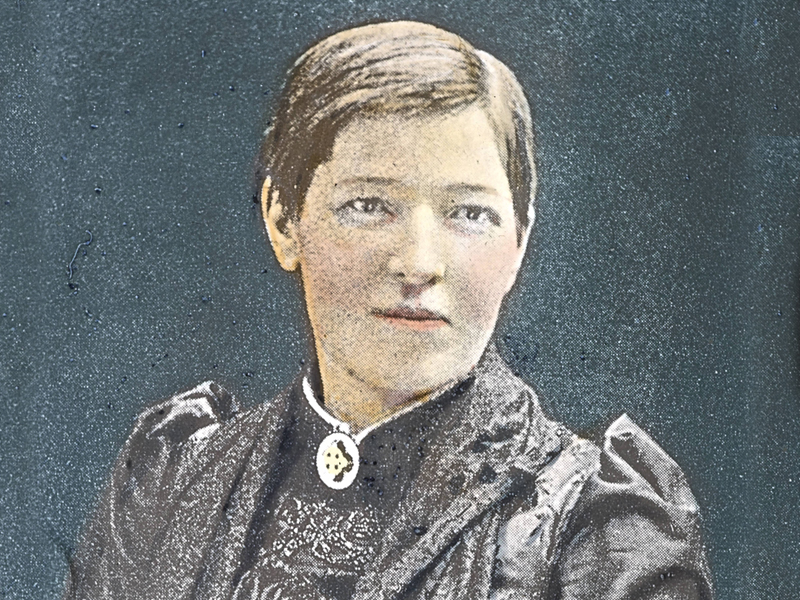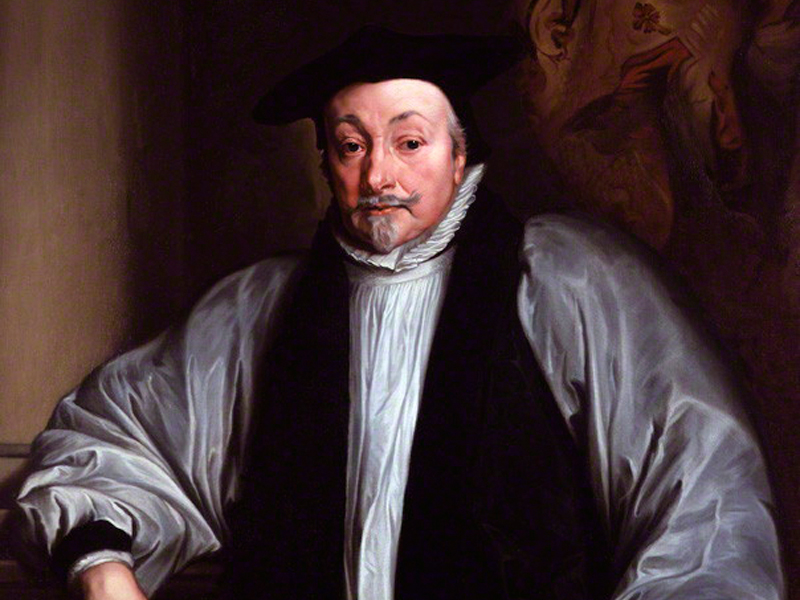
2019
The Birth of Roman Emperor Titus, AD 39
Week of December 29
The lives of the Roman Emperors have always been of interest to historians of Western Civilization. They remain a cornerstone in classical education and of certain interest to Christians in the study of Church history, especially as it relates to the martyrs. Although not mentioned by name in the...
John C. Calhoun Resigns as Vice President, 1832
Week of December 22
Few U.S. Presidents have been more controversial than Andrew Jackson. He still stimulates debate, anger, and admiration, as he did in his own day, although today primarily among academic historians, rather than members of Congress...
Antiochus Epiphanes Profanes the Temple, 156 BC
Week of December 15
A number of important historical events occurred in the period between the Old Testament and the New Testament (c. 420 B.C.—1 A.D.), called by Protestants the “intertestamental” period and by Roman Catholics the “deuterocanonical” era...
The Birth of Lottie Moon, 1840
Week of December 8
Charlotte Digges “Lottie” Moon came into the world as the fourth daughter of a family that eventually produced eleven children on a 1,500 acre Virginia tobacco plantation. She left the world twelve days after her seventy-second birthday, having spent the previous thirty-nine years as a single Southern...
The Birth of Mitsuo Fuchida, 1902
Week of December 1
"The sunrise in the east was magnificent above the white clouds as I led 360 planes towards Hawaii. I knew my objective: to surprise and cripple the American naval force in the Pacific . . . Like a hurricane out of nowhere, my torpedo planes, dive bombers, and fighters struck suddenly with...
The Birth of C.S. Lewis, 1898
Week of November 24
Clive Staples Lewis entered the world in a family of the middling sort, in Belfast, Northern Ireland in 1898. Nothing about his birth or his family’s standing could have indicated that before he finished his course on earth sixty-four years later, he would have become one of the most prolific...
William Tell and Swiss Independence, 1307
Week of November 17
We all recognize the finale of Gioachino Rossini’s William Tell Overture, but how many know what the Swiss patriot actually accomplished, or if he existed at all? When I was a youngster, William Tell was a hero to me, with a crossbow over his shoulder and evil soldiers at his heels. Tell was a local farmer...
Signing of the Mayflower Compact, 1620
Week of November 10
2020 marks the Quadricentennial of the landing of the dissenting English Puritans known as Pilgrims, north of Cape Cod, where they established a colony they named Plymouth, after the port from which they sailed from England. Because their charter indicated they would join the Virginia colony...
William Carey’s India Mission, 1793
Week of November 3
“He was an industrialist, an economist, a medical humanitarian, a media pioneer, an educator, a moral reformer, a botanist, and a Christian missionary. And he did more for the transformation of the Indian subcontinent in the nineteenth and twentieth centuries than any other individual....
Servetus Burned at the Stake in Geneva, 1553
Week of October 27
Reformed Churches admire and revere John Calvin, the pastor in Geneva, Switzerland in the mid-16th Century. People who hate Calvin, especially historians, if they know anything at all about the great reformer and the Reformed...
The Death of Herbert Hoover, 1964
Week of October 20
Herbert Hoover strode the world stage as a colossus of business, enterprise, and philanthropy before being humiliated and hounded for almost two decades by a ruthless and unprincipled political enemy, and then by historians who took up the cause of his opponents. It is unlikely any single...
The Birth of the American Navy, 1775
Week of October 13
In 1775, England boasted the mightiest navy in the world. The borders of empire had expanded by more than a third as a result of the Seven Years War, ending in 1763. Her army, however, could count only about 36,000 men to defend that empire twelve years later, so the dependence upon the...
Benjamin Keach Arrested, 1664
Week of October 6
The sixth decade of the 17th Century bode ill for Christians who defied the Anglican Church Bishops. King Charles II gave free reign to his churchmen to crack down on any preachers or laymen considered heterodox. Several thousand of their own clergy and the Presbyterians of Scotland were ejected...
The Death of Saint Jerome, A.D. 420
Week of September 29
His given name was Sophronius Eusebius Hieronymus but he has come down to us in history as Saint Jerome. Of course all Christians are saints according to the New Testament, but the Church has not always been punctilious about what the Scriptures actually teach. Born in A.D. 347 in a...
Billy Graham Enters First Pastorate, 1939
Week of September 22
The “Second Great Spiritual Awakening” in American history occurred throughout the first half of the 19th Century. During that time, several prominent white-hot evangelists succeeded in introducing innovative measures, rejected by...
Oklahoma Land Rush, 1893
Week of September 15
If you lived with your growing family in a rude, one-room cabin, perhaps rented, in the midst of a terrible economic depression, and the federal government offered you the opportunity to put a stake in the ground of a fertile, rolling prairie and...
Galveston Hurricane, 1900
Week of September 8
The greatest loss of life from a “natural disaster” in the United States occurred on September 9, 1900, when a category 4 hurricane struck the boom town of Galveston, Texas killing at least 8,000 people, destroying about 7,000 buildings and leaving...
John Calvin Returns to Geneva, 1541
Week of September 1
The Protestant Reformation was the greatest revival of the Church since Pentecost. As in most acts of history, God raised up particular men to accomplish His purposes. Few men in history since the time of the Apostles, have influenced the expansion of...
John Milton Ducks Charles II, 1660
Week of August 25
Bunhill Fields Cemetery in London contains the earthly remains of many prominent dissenters or “non-conformists” of England’s history. As an almost unknown historic site to most people, among the two thousand or so markers, Bunhill’s tombs...
Leon Trotsky Assassinated, 1940
Week of August 18
The names most commonly associated with the Bolshevik Revolution that overthrew the Czar of Russia, Nicholas II, are the Russian revolutionary Vladimir Lenin and the Ukrainian “Iron Man” Joseph Stalin. Very few of their comrades survived both...
The Birth of David Crockett, 1786
Week of August 11
The Crocketts were primarily of French Huguenot descent. They eventually made their way to western Carolina and, like thousands of others of their countrymen, settled in the mountainous frontier in times of bitter conflicts. Most of Crockett’s family...
Cane Ridge Revival, 1801
Week of August 4
There were still a few people living who remembered the “Great Awakening” of the 1740s when Jonathan Edwards, George Whitfield, Gilbert Tennant, Samuel Davies and other preachers witnessed the “outpouring of...
The Death of Maximilien de Robespierre, 1794
Week of July 28
Lawyers led the French Revolution. They were able to manipulate and inspire the mobs in the streets and co-opt some of the army to bring about political instability, revolt against the monarchy, and...
Nero’s Persecutions Begin, A.D. 64
Week of July 21
The apostles had been forewarned by Jesus that persecution and martyrdom would be in their future. For thirty-one years the persecutions had been haphazard and typically—but not exclusively—inspired by Jewish leaders in different areas of...
Thomas Jonathan Becomes “Stonewall” Jackson, 1861
Week of July 14
In 1861, eleven Southern states seceded from the United States. Virginia, one of the last to leave the Union, had been sharply divided. They even rejected secession initially, till President Lincoln...
The Battle of Britain Begins, 1940
Week of July 7
In that immortal address to Parliament in June of 1940, Winston Churchill defined the stakes of a battle, one of the few in history named a month before it began: “What General Weygand called the Battle of France is over. I expect that the battle of...
Patriarchs and Pope Part Company, 1054
Week of June 30
In the 11th Century, the Christian Church recognized five ecclesiastical jurisdictions, or “Sees” within Christendom — Rome (Latins), Constantinople, Alexandria, Jerusalem, and Antioch. This “Pentarchy” was formally recognized...
Custer’s Last Stand, 1876
Week of June 23
The Battle of the Little Bighorn on June 25, 1876 produced more shock to the American people and more interest and writing than any other battle between “Native” Americans and government soldiers in American history. Neither interest...
Sir Christopher Wren Tasked with Rebuilding St. Paul’s Cathedral, 1666
Week of June 16
At the end of his life, Sir Christopher Wren could look back on his previous ninety years, and reflect on a world of both great troubles and brilliant accomplishments. Born in the reign of King...
The Death of G.K. Chesterton, 1936
Week of June 9
Christian apologist and philosopher, humorist, writer, debater and thoroughgoing eccentric, Gilbert Keith Chesterton, left behind a legacy of amusing quips, wise proverbs, and brilliant insights. He wrote about eighty books, two hundred short stories...
Uncle Tom’s Cabin, 1851
Week of June 2
Certain books have changed the course of American history. Thomas Paine’s Common Sense in 1776 inflamed the passions of patriots considering independence from Britain, and tipped others who had been undecided, into the patriot...
The Johnstown Flood, 1889
Week of May 26
Floods are among the most destructive of all the natural phenomena that have afflicted mankind in the past. Due to a series of man-made modifications to the Little Conemaugh River in Pennsylvania, an unprecedented downpour of...
The Death of Thomas Boston, 1732
Week of May 19
Thomas Boston was born in 1676, in the midst of the “killing times” in Scotland, when the English King and his myrmidons in Scotland hunted down and persecuted the Covenanters. Thomas was born in the tiny parish of Duns in Berwickshire, in the...
Lewis and Clark Leave St. Louis, 1804
Week of May 12
Thomas Jefferson, that brilliant and inquisitive President, political theorist, farmer, scientist, scholar, diplomat, inventor and traveler, devised a plan to explore the lands associated with the Louisiana territories. He chose two men to lead...
American Bible Society Founded, 1816
Week of May 5
In the early years of the 19th Century, renewed interest in publication and distribution of Bibles, resulted in the creation of voluntary associations of Christians, in different states and regions of the United States, devoted to that end. By 1816, 130...
The Death of J. Edgar Hoover, 1972
Week of April 28
John Edgar Hoover held the office of director of the FBI for forty-eight years, served under eight presidents and eighteen attorney generals. He amassed thousands of files on every sort of criminal, suspected communist subversive...
Library of Congress Established, 1800
Week of April 21
James Madison suggested in 1783, following the securing of independence, the idea of a library for congressional use. In 1800, President John Adams signed into law the creation of The Library of Congress, along with an appropriations bill of...
The Sinking of the RMS Titanic, 1912
Week of April 14
The story is a familiar one to Americans. The mighty White Star Line of the United Kingdom built the fastest passenger ship afloat — RMS Titanic. On her maiden voyage from Southampton to New York, it struck an iceberg in the middle of the night due...
General Lee Surrenders at Appomattox, 1865
Week of April 7
“After four years of arduous service, marked by unsurpassed courage and fortitude, the Army of Northern Virginia has been compelled to yield to overwhelming numbers and resources.”
William Samuel Johnson Becomes Senator of Connecticut, April 2, 1791
Week of March 31
William “Sammy” Samuel Johnson’s father held that most prestigious position of a New England intellectual — pastor of a church in Stanford. Hoping Sammy would follow him into the ministry...
The Spanish Civil War Ends, 1939
Week of March 24
The two world wars of the 20th Century, renowned for their astounding casualties, barbarity, and world-encompassing effects, have crowded out all public knowledge of the Spanish Civil War (1936-1939). It was a conflict full of mass murder and...
The Death of Sir Isaac Newton, 1727
Week of March 17
English poet Alexander Pope penned this couplet in regards to Sir Isaac Newton and his place in science and history: “Nature and nature’s laws lay hid in night
God said ‘let Newton be,’ and all was light.” Sir Isaac Newton has been declared, over...
The Pilgrims Meet Samoset, 1621
Week of March 10
The pleasantly named ship, the Mayflower, had been rocking at anchor in the harbor since November of 1620. The three-masted, three-decked, and well-armed merchant ship brought one hundred three passengers and its crew of about...
John Adams Inaugurated, 1797
Week of March 3
A New Jersey delegate to the Second Continental Congress said it best: "The man to whom the country is most indebted for the great measure of independence is Mr. John Adams . . . I call him the Atlas of American independence. He it was who...
Theodosius Makes Christianity the Official Faith of the Roman Empire, 380 A.D.
Week of February 24
Flavius Theodosius was born in northwestern Spain to a high-ranking Roman Officer. As a young man he traveled with the army of his father on campaign in Britain and elsewhere, where he witnessed the...
Aaron Burr Arrested for Treason, 1807
Week of February 17
Most Vice Presidents of the United States both serve out their term and then die in obscurity. There are exceptions — fourteen became President, eight of them because the President died during their term. Some of the Veeps lived interesting lives...
James Oglethorpe Founds Savannah, Georgia, 1733
Week of February 10
Like Confederate President Jefferson Davis, James Oglethorpe was the tenth and last child of a wealthy landowner, but in London, England rather than Fairview, Kentucky. James would eventually follow...
Boy Scouts Incorporated in Washington, D.C.
Week of February 3
The original Boy Scouts organization was created by Lt. Gen. Robert Stephenson Smyth Baden-Powell, a veteran of the Ashanti and Boer Wars. The General wrote several books, one a manual...
The Birth of Mozart, 1756
Week of January 27
Wolfgang Amadeus Mozart has one of those famous names that requires only his surname for everyone to know to whom you refer. Mozart would live only thirty-five years but he built a musical reputation that has few rivals in history...
The Death of Queen Victoria, 1901
Week of January 20
The news of Queen Victoria’s death raced around the world. Several generations had been born and died since her ascending the throne in 1837. The British Empire became the mightiest in Europe during her reign, as British troops fought on five...
Mary Slessor, the “White Queen of Calabar” Dies, 1915
Week of January 13
Missionaries from the United Kingdom and the United States have been in the forefront of Protestant foreign missionary endeavors of the last two hundred years. Some of those men and...
Archbishop William Laud Is Executed, 1645
Week of January 6
The Archbishop of Canterbury is the highest Episcopal office in England, apart from the King or Queen, who were so designated by King Henry VIII as the “Supreme Head of the Church.” One of the...


